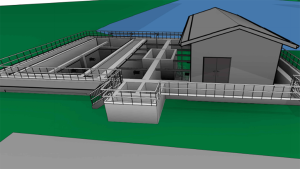The city of Ottawa has been offered a free garbage treatment plant that would utilize plasma gasification technology that has attracted interest from municipalities across the country.
Waste Management
OTTAWA
The City of Ottawa has been offered a free garbage-treatment plant, one that uses a plasma gasification technology that has attracted interest from municipalities across the country.
Plasco Energy Group briefed city councillors on the offer recently, and a decision is expected by early July.
Plasco president Rod Bryden and city manager Kent Kirkpatrick briefed reporters on the proposal, which involves construction of a $125-million plant at Plasco’s expense. It would have the capacity to take all of the city’s residential garbage that can’t be recycled. It would be located adjacent to a city-owned landfill in the west end.
Plasco would make its money on the deal by collecting about $8 million a year from the city as a fee for treating the garbage.
Plasma gasification is a sealed system that breaks down garbage at extremely high temperature.
It’s not incineration. In fact, it occurs in an oxygen-starved environment so the garbage can’t burn.
The end result is a synthetic gas — Plasco calls it syngas — that powers engines to drive turbines generating electricity. It is at that stage that the first emissions to the atmosphere occur.
The byproduct of the process is an inert slag that can be crushed and used as roadbuilding aggregate.
There have also been experiments that involve grinding it for use in some concrete mixes. The process also leaves behind some sulphur, which can be used to condition soil, and small amounts of heavy metals that go to landfill in Sarnia.
A pilot plant on the site was built in 2006, and after a period of experimentation and adjustment, began generating electricity and feeding it to the provincial power grid about four months ago.
That plant diverts about 75 tonnes of waste a day from the city’s landfills, while generating enough power to run the plant and power about 3,600 homes as well.
Ottawa’s landfills are nearing capacity, a situation that exists in many cities. That’s one reason, city officials said, that there was a lot of interest in the Plasco technology at the recent meeting of the Federation of Canadian Municipalities in Quebec City.
Ottawa generates roughly 300,000 tonnes of residential garbage a year.
After recyclables are diverted, about 136,000 tonnes remains, the equivalent of perhaps 400 tonnes a day which would be sent to Plasco should the deal with the city be approved. The electricity generated from that amount would be sufficient to power about 25,000 homes.










Recent Comments
comments for this post are closed